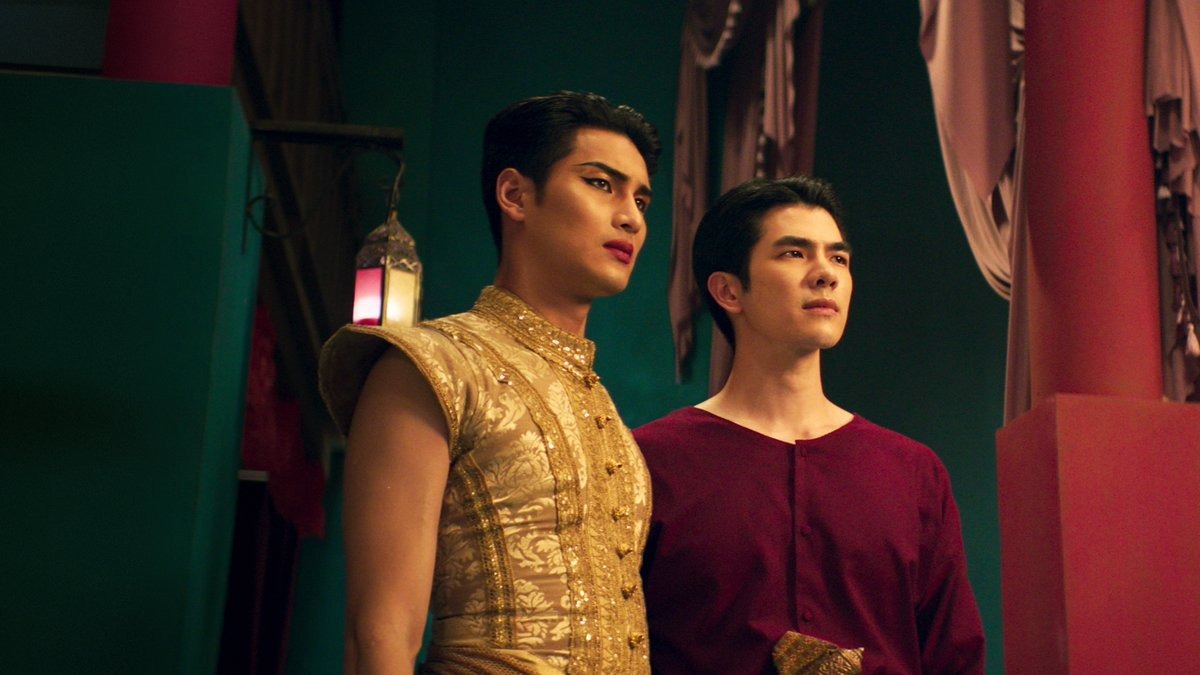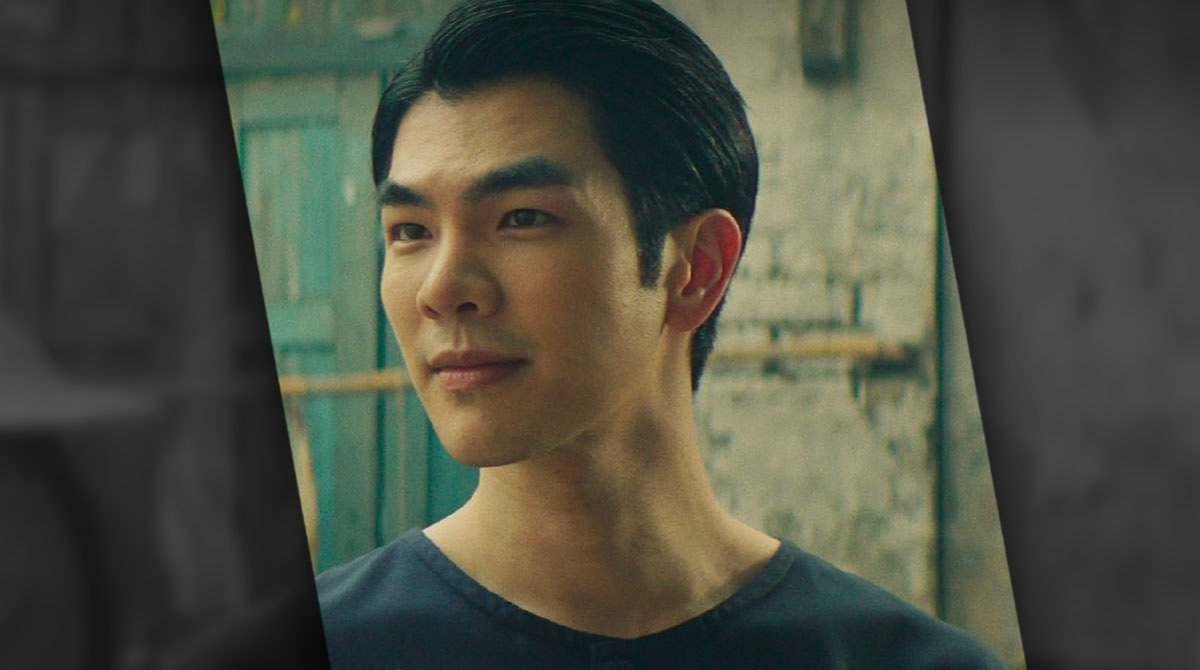Set against the backdrop of 19th-century Thailand, Man Suang introduces us to two exploited performers, Khem and Wan, who are ordered to track down evidence of rebellion at the posh yet suspicious Chinese club, ManSuang. As King Rama III’s reign nears its end, various factions struggle to install their chosen heir to the throne while secret political schemes bubble beneath the surface.
While trying to gather intel, Khem and Wan encounter Chatra, a musician with his own hidden objectives for assisting them. Unfortunately, what begins as a simple mission quickly drags all three into a dangerous maze of deception and hidden motives.

The film builds toward a tense final act and a thought-provoking resolution. Here is a breakdown of the movie’s ending while we await the follow-up, Shine.
Who Is in Possession of the Contract?
Things kick off with Khem and Wan being apprehended for allegedly murdering Muen Kijraksa, a government officer. His uncle, Phraya Bodisorn, offers them a chance at redemption.
If they can retrieve an English-written contract that exposes Phraya Wichiendej of the Harbor Department for conspiring with Europeans in an arms agreement to seize power, their lives would be spared.
The last known person to hold the contract was a broker named Khun Suthin, who turned up dead near ManSuang—a known spot for Phraya Wichien. Khem then ropes Chatra into the mission after discovering he can read English.
Hong, the son of ManSuang’s owner, gets pulled into the affair as events escalate. As their search intensifies, courtesan Tubtim shares that Suthin gave her the contract before his death, sensing his time was running out.
Later on, it comes to light that two separate contracts existed—one tying Phraya Bodisorn to the Europeans, and another between the same Europeans and Phraya Wichien. Suthin had been working both sides without either knowing, managing both deals in secret.
Who Are the Actual Rebels?
Near the end, it becomes clear that both political camps assumed the other was acting as rebels. Phraya Bodisorn believed Phraya Wichien was plotting with ManSuang’s owner, Master Cheng, and the Tua Hia Chinese gang to push their chosen prince to the throne.
On the other hand, Phraya Wichien was convinced that Bodisorn’s chosen prince had joined forces with the Europeans and would sell Siam out just like what had happened in Burma.
Tiang, the nephew of Cheng, had his own ambitions. Holding resentment toward the Thai establishment, he aimed to betray the Tua Hia by painting them as the rebels. By “stopping” their false rebellion, he hoped to gain favour in the royal court.
With assistance from Phraya Wichien, Tiang aspired to climb the ranks of government and eventually take control. To gain leverage, he attempted to wrest the contract from Suthin. When Master Cheng refused to go along with Tiang’s scheme, Tiang murdered him. He also tried to eliminate Hong, fearing opposition, but failed in that attempt.
Why Did Wan Turn Against His Friends?
Early on, viewers learn that Wan harbours unresolved trauma from an incident involving the Chinese. He remains nervous and deeply distrustful of anyone with Chinese heritage, including Chatra. When Khem declines to support a plan that involves using Phraya Bodisorn to eliminate the Tua Hia, Wan takes matters into his own hands.
He approaches Phraya Bodisorn alone, pleading with him to attack the Chinese at ManSuang. Bodisorn turns him down, unwilling to act until the contract and weapons are in his control. Feeling dejected, Wan departs but is spotted and captured by one of Wichien’s men.

When Wichien says he’s aiming to get rid of the Tua Hia, Wan quickly switches allegiance, thinking he’s finally found someone who understands his cause. Still, Wichien doesn’t give him any direct orders—he only says to act as he sees fit.
Thinking he’s helping, Wan assumes Wichien wants Hong dead and sets off to do it. He still tries to shield Khem, seeing him as his only friend, but is emotionally crushed when Khem aligns himself with Hong.
Wan finally confesses that members of the Tua Hia raped and murdered women in his home village, including his own sister. Refusing to believe that the ManSuang Chinese are unrelated, Wan attempts to destroy them by igniting gunpowder. Khem is forced to shoot him to stop the destruction.
As Wan lies wounded, Chatra gives him the contracts. But Khem is no longer interested in vengeance. Chatra decides to use the documents to blackmail Phraya Bodisorn into granting Khem a full pardon. Instead of mere clemency, Bodisorn goes further by awarding land and noble titles to both Khem and Chatra. He also forms a temporary ceasefire with Wichien.
Still, Khem declines nobility, expressing a desire to work from within to uplift others of his status. Chatra also rejects a political role, choosing instead to drive change from behind the scenes.
Was Suthin Truly a Dishonest Man?
Khun Suthinborirak, a registrar at the Harbor Department and father to Chatra, double-crossed both Phraya Bodisorn and Phraya Wichien by negotiating separate weapons deals on each side.
He advises Chatra to tread carefully, warning him about the perils of involvement in royal affairs. Eventually, Chatra comes to view his father as corrupt and driven by greed.
However, there’s a possibility that Suthin had other reasons for what he did. His efforts to shield the contract from both Bodisorn and Tiang were extreme. He initially planned to pass the documents to Master Cheng and Hong, whom he trusted to stay out of politics.
After Cheng declined, he left the contracts with Tubtim. To make sure the secret didn’t fall into the wrong hands, he even took his own life. Still, his true intentions remain unclear, and Shine won’t be revisiting these events.



